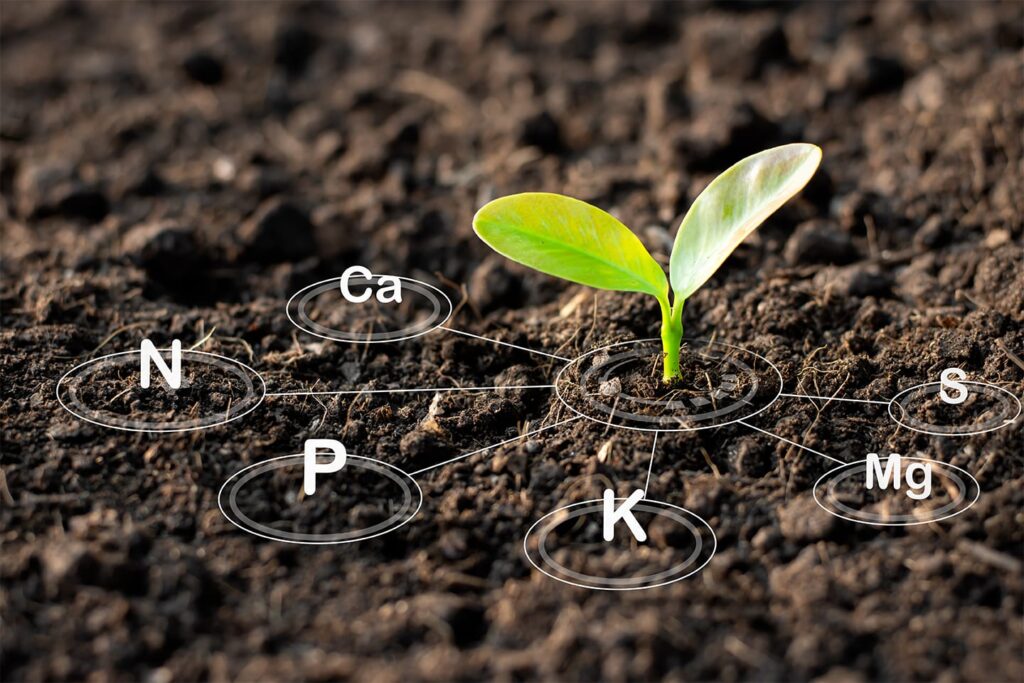- The cost of land degradation due to poor soil health is estimated to be between $850 and $1,400 per year for every individual, with a global cost of between $6.3 and $10.6 trillion annually.
- African governments should invest in improving access to organic and mineral fertilisers to enhance soil health.
- The continent now produces approximately 30 million tonnes of fertiliser annually, twice as much as it currently consumes.
Soil health is vital in supporting food production and water filtration. Since the 1960s, land degradation in Africa has led to a significant expansion of agricultural land by about 300 per cent, compared to 25 per cent elsewhere. This has happened at the expense of forests, wetlands, and other fragile systems. The expansion is driven by the need to reimburse for the decline in productivity caused by soil fertility decline.
The cost of land degradation due to poor soil health is estimated to be between $850 and $1,400 per year for every individual, with a global cost of between $6.3 and $10.6 trillion annually.
Soil fertility decline not only reduces crop yield but also worsens the impacts of climate change by reducing the land’s resilience and capacity to adapt.
The African Union and the Government of Kenya hosted a Heads of State Summit in Nairobi, Kenya, to delve into the importance of soil health and fertiliser use in African food systems.
Priorities and policies critical in soil health
African policymakers and scientists have addressed different aspects of the environment and its sustainability, however, there are priorities that must be treated as critical policy areas.
Governments should develop and implement policies that support smart subsidies for targeted fertilisers and inputs for soil health improvement. Smart subsidies can aid farmers in transitioning from conventional farming to a more sustainable farming system. Additionally, investments that target the restoration of degraded lands can enhance productivity, improve carbon sequestration, and increase biodiversity, as well as reduce climate risks.
Moreover, Studies have shown that the combined use of organic and mineral fertilisers could increase rainwater productivity by 50 – 200 per cent, with a clear path to reduction of climate risks to crops.
Consequently, the government must prioritise land tenure policies to empower farmers to protect their land and landscapes. Stronger land use and protection policies should be adopted to ensure the sustainable use of this finite resource. There is a lot of evidence that shows that farmers protect the land from erosion and other physical damage when the incentives are right. There is no question that land titling to farmers is one of the many incentives to help reduce the high rate of ecosystem degradation and erosion.
Also Read: Africa’s agritech potential crucial for economic growth
Support investments in fertiliser systems
African governments should invest in improving access to organic and mineral fertilisers to enhance soil health. This can be done by promoting domestic production, distribution, and intra-regional trade of fertilizers and increasing the production and use of lime to manage soil acidity. The governments need to ensure the affordability and availability of fertilizers since this is essential for soil nutrient replenishment and maintaining agricultural productivity.
Nitrogen inputs should increase at least fourfold to close the yield gap in Africa. Liming acid soils increases crop yield by 35 – 50 per cent, and its effect could be pronounced by an additional 20 – 25 per cent when integrated with carbon sources, including green manuring and composting.
As a continent, there is a need to invest in functional extension systems and create capacity for providing locally relevant soil health and fertiliser management technologies and practices. Providing advisory services to small-scale farmers and establishing regional networks for knowledge exchange will empower farmers to make good decisions and adopt best practices for soil health and fertiliser use.
Empowering farmers through farm-level innovation in promoting soil health and fertiliser use
AGRA and partners have demonstrated that it is possible to reduce the farmer extension ratio from 1:3000 to 1:500 and the last mile from over 22 kilometres to less than 8 on average across 11 countries. This strengthens the last mile and allows farmers to have access to information and technologies. Today, farmers that produce five metric tonnes per hectare can be found in African countries—but this must be scaled and anchored in a sustainable private sector ecosystem.
African governments should support local research capacity and infrastructure, including functional soil labs. They must also enable and leverage private sector organisations, facilitating integration between research institutions, universities, and extension services to encourage the development and availability of new technologies to fasten addressing soil health challenges.
Africa has made some impressive progress over the last couple of years. The continent now produces approximately 30 million tonnes of fertiliser annually, twice as much as it currently consumes. This increase in local fertiliser manufacturing results from over $15 billion in investments by the private sector, primarily focused on local production.
Public-private partnerships have been formed to address challenges related to fertiliser and nutrient use efficiency, research and development, and improved research infrastructures such as soil labs. Additionally, average fertiliser use at the farm level has more than doubled in the last 18 years.
Challenges in creating a sustainable soil health system
Climate change and externalities such as the Ukraine-Russia war and the aftereffects of the COVID-19 pandemic have intensified the challenges faced by African farmers. These external factors have further hindered or reversed the early gains of crop yield enhancement, posing additional obstacles in the path of agricultural development in Africa.
Technology and practices for enhancing soil health in Africa
Significant strategies and practices for improving soil health in Africa are conservation agriculture, Integrated Soil Fertility Management, agroforestry, crop associations. Additionally, regenerative agriculture and agroecology approaches have gained momentum as well. The extent of use for the above soil health-promoting mechanisms must be assessed before used to clarify on fitness in different regions.
Conservation agriculture, a practice combining soil disturbance, permanent soil cover, and crop rotation, is important for soil health and the associated ecosystem services. Good soil structure, enhanced soil biodiversity and biological activity, and soil water absorption and retention.
Inside the Africa Fertilizer and Soil Health Summit 2024
To address the challenges, opportunities and more, the African Union and its partners organised the Africa Fertilizer and Soil Health Summit 2024, which took place in Nairobi, Kenya. The summit brought together relevant stakeholders to highlight the crucial role of fertilizer and soil health in stimulating sustainable pro-poor productivity growth in African agriculture.
The meeting negotiated for an African-focused fertiliser and soil health action plan, provided policy directions and concrete recommendations that will guide African governments in the next decade, created an operational roadmap to ensure the effective implementation of the action plan, and mobilised policymakers and development organisations as well as other stakeholders to work towards improving soil health and fertiliser use, among other.
By endorsing the action plan to improve soil health and fertiliser use in African agriculture, leaders and stakeholders will show their commitment towards the implementation. The action plan will guide policy decisions and interventions in the next decade.
Sustainable pro-poor productivity growth and economic development in the agricultural sector will only happen when leaders are committed and are prepared to be bold about the necessary commitment and changes the continent must undertake.
There is hope that the summit will pave the way for collaborative efforts, knowledge sharing, and investments in soil health and fertiliser use, ultimately unlocking the potential of African agriculture. There is a constant reminder of the need to balance human needs and ingenuity with environmental needs, fragility, and finiteness.




